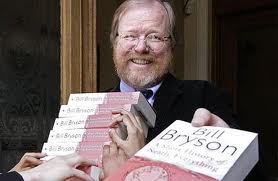Firemen Who Respond to Situations, Not Indexes
Posted on October 2, 2012
Filed Under Communication, Technology | Leave a Comment
We’ve come upon a website that looks like a great place to go for insights into effective organizational learning and communication. It’s the FireEngineering site at www.fireengineering.com. The post that drew our attention in Google-roaming is “TailboardTalk: Write More Rules or Empower Your Firefighters?”
 It’s increasingly recognized that giving people principles, rather than indexed rules, to follow is the way to go in organizational communication and training. That way, they can size up challenging situations that may occur from their own insights and experience, instead of thumbing through an ever-thicker book of rules. It’s an approach more akin to experiential than rote learning.
It’s increasingly recognized that giving people principles, rather than indexed rules, to follow is the way to go in organizational communication and training. That way, they can size up challenging situations that may occur from their own insights and experience, instead of thumbing through an ever-thicker book of rules. It’s an approach more akin to experiential than rote learning.
Read more
Bill Bryson’s ‘Manual’ on Creation
Posted on September 14, 2012
Filed Under Communication, Technology, The Writing Life | Leave a Comment
We’ve always been pleased to have Bill Bryson’s 2003 book, A Short History of Nearly Everything, in our library, and now we intend to set about reading it cover-to-cover. That resolve comes after revisiting Bryson’s engaging treatment of “The Reverend Evans’s Universe” near the book’s start.
 You won’t find a more engaging introduction to the truly awesome death of supernovae far out, very fortunately, in the universe. Nor will you find many other places (including, however, the works of John McPhee) that offer such helpful clues to engaging technical writing. That’s right, technical writing can be at least somewhat engaging, without ceasing to be accurate, informative and helpful.
You won’t find a more engaging introduction to the truly awesome death of supernovae far out, very fortunately, in the universe. Nor will you find many other places (including, however, the works of John McPhee) that offer such helpful clues to engaging technical writing. That’s right, technical writing can be at least somewhat engaging, without ceasing to be accurate, informative and helpful.
Read more
Your Aim: Enlightenment, Not Punishment
Posted on August 28, 2012
Filed Under Communication, The Writing Life | Leave a Comment
We were browsing the web for ideas and came upon a post on the Accidental Remediation blog by Short Geologist. All we can discover about Short Geologist is that she’s a woman, but from her post anyway, a wise one.
 SG has “a mania for clear, concise technical writing.” How do you get to that exalted state – a producer of clear, concise technical writing? Remember one thing, SG advises: “This isn’t high school, where you’re trying to pad your 11th-hour essay to fit the word count. Nobody cares how big your words are – and if they’re too big, perhaps it’s time to abbreviate. Remember, you’re writing to communicate, not punish the reader!”
SG has “a mania for clear, concise technical writing.” How do you get to that exalted state – a producer of clear, concise technical writing? Remember one thing, SG advises: “This isn’t high school, where you’re trying to pad your 11th-hour essay to fit the word count. Nobody cares how big your words are – and if they’re too big, perhaps it’s time to abbreviate. Remember, you’re writing to communicate, not punish the reader!”
Read more
Automate Your Writing? Not Really, but Here’s a Useful Indicator
Posted on August 16, 2012
Filed Under Communication, Technology, The Writing Life | Leave a Comment
Here’s a throwback to awareness in the present that technical writers – indeed, anyone who writes seriously – might appreciate. Wiley Brooks on the Business2Community site reminds us of Rudolf Flesch’s algorithm-based readable writing tool. Drop in a body of text, press the button and get your score for clear writing. Wow!
 Flesch, Brooks notes, was a lawyer and refugee from Nazi Germany who “earned a Ph.D. in English at Columbia University, and then became a prominent professor there.” He’s pictured here.
Flesch, Brooks notes, was a lawyer and refugee from Nazi Germany who “earned a Ph.D. in English at Columbia University, and then became a prominent professor there.” He’s pictured here.
Read more
Mind-Mapping as a Research and Retrieval Tool
Posted on July 19, 2012
Filed Under Communication, Technology | 1 Comment
We’re all adept note-takers, but we’re not necessarily adept note-retrievers. While computers encourage note-taking and data-collecting, they don’t necessarily make the retrieval of collected data a joy. Technical writers can testify to that.
The retrievability of information has to do not only with our computer’s storage whims, but with our own brains. We like patterns and relationships, not simply stuffing material away, even in electronic form. That’s why I’m big on the filing technique known as mind-mapping; it’s a great organizing and retrieval tool.
Read more
A Writing Blogger Who Has It Right
Posted on July 13, 2012
Filed Under Communication, Technology, The Writing Life, Uncategorized | Leave a Comment
Friday the 13th has turned out to be my lucky day, in a tradesman’s sense, at least. I’ve just come upon John Graham-Cumming’s blog on technical writing and it’s great to have discovered a kindred spirit who reaffirms what little I thought I knew about writing. To the fullest.
 Graham-Cumming is a British computer programmer and writer. His pointers are right on the mark: Practice, Read, Listen to Editors, Think about writing, Think about the reader, Plan and Dream. That’s it, and it’s plenty.
Graham-Cumming is a British computer programmer and writer. His pointers are right on the mark: Practice, Read, Listen to Editors, Think about writing, Think about the reader, Plan and Dream. That’s it, and it’s plenty.
Writing is a discipline, but a hazy one. There are explicit things to do, yet inspiration comes first, and that’s where the dreaming comes in. Technical writers have it over their more creative colleagues in this respect, because their material is relatively “dictated,” it’s permissible parameters are clearer. Yet writing well always involves reflection and rededication, whatever the subject assignment. Hence the dreaming factor.
Read more
Aatish Bhatia: A Young Chronicler of Science
Posted on July 10, 2012
Filed Under Communication, Technology, The Writing Life | Leave a Comment
Just as blogs are providing new outlets for journalism so, too, are they producing a new generation of science writers. We’ve come upon one of them, Aatish Bhatia, creator of the blog Empirical Zeal, and he’s someone to follow. It’s a gift to explain complex material clearly and colorfully, and Aatish has that gift. Here, he’s featured by Scientific American.
Even when he’s not writing about colors, as he is in his post “Crayola-fication of the World: How we gave colors names, and it messed with our brains,” he’s writing colorfully and clearly, as in “What it feels like for a sperm, or how to get around when you are really, really small.”
 Aatish says his gift for chronicling science comes from growing up in a home where his father is a journalist and his mother a writer. “To a large extent,” he adds, “my interest in science grew from reading popular science.” For how many others of us has that been true?
Aatish says his gift for chronicling science comes from growing up in a home where his father is a journalist and his mother a writer. “To a large extent,” he adds, “my interest in science grew from reading popular science.” For how many others of us has that been true?
His “gateway book” was Surely You’re Joking, Mr. Feynman. “It made my eighth-grade self realize that interesting people actually chose science as a career. That opened the door to a lot of other popular science authors. It became a bit of an obsession but to a large extent, these books guided my career interests.”
Read more
Good Communication Matters Most
Posted on July 6, 2012
Filed Under Business, Communication, Technology | Leave a Comment
What does it take to get on in the world if you’re a technically inclined person? Why, knowledge of your theories, equipment and processes – that should be obvious, shouldn’t it? Well yes, but it’s not the heart of the question. There lies something else – the ability to relate well to others and to communicate well. (It’s like a dentist who does excellent root canal work but neglects to explain to the patient beforehand what the cost will be and why.)
Dennis Owen and myself at Encore Technical Resources have known that good relational communication matters most for some time, even before our years of working together at the post-accident Three Mile Island Unit 2. (Dennis was a recovery engineer and I was the communication manager.)
 And here’s a Penn State instructor emphasizing anew the primacy of good communication in technical settings. Myron Hartman teaches biomedical engineering technology. He gives his third semester students a questionnaire that asks them to rank the skills an entry level technician needs.
And here’s a Penn State instructor emphasizing anew the primacy of good communication in technical settings. Myron Hartman teaches biomedical engineering technology. He gives his third semester students a questionnaire that asks them to rank the skills an entry level technician needs.
He lists them as “troubleshooting electronic components, computer skills, people skills (verbal), communication skills (writing), equipment function and operation, and clinical application of medical equipment.”
Read more
Cursive Writing on the Brink of Extinction?
Posted on June 25, 2012
Filed Under Communication, Technology, The Writing Life | Leave a Comment
This post isn’t about technical writing. It’s about writing plain and simple – handwriting, indeed, cursive writing. Cursive writing is under attack in our digital age, this coverage from South Carolina being the latest example we’ve seen.
 Since, the argument goes, practically everything is typed, emailed or texted these days, what’s the point of having kids tediously learn handwriting? Well, what about those moments when a keyboard – full-, iPad-, or pocket-sized – may simply not be at hand, or when your signature is required, or when you may want to make a more personal impression?
Since, the argument goes, practically everything is typed, emailed or texted these days, what’s the point of having kids tediously learn handwriting? Well, what about those moments when a keyboard – full-, iPad-, or pocket-sized – may simply not be at hand, or when your signature is required, or when you may want to make a more personal impression?
‘Evacuation’ a Loaded Crisis Word
Posted on June 15, 2012
Filed Under Business, Communication, Government, Technology | Leave a Comment
It’s interesting how much added, sometimes mistaken, power words seem to gain in a crisis, when people are fearing the worst of a situation or are anxious about those in charge of dealing with it. The tendency of concerned, frightened people to escalate meaning helps explain why staying cool during an emergency and being very careful with words at such times is so important.
From Japan, in the aftermath of last year’s Fukushima nuclear disaster, comes an acknowledgement by Masataka Shimizu, the former President of Tokyo Electric Power, of his actions during the crisis: “I remember mentioning an ‘evacuation’ but I’m not sure whether I used the term ‘partial.'” Oh dear.
 It would be a normal response to evacuate nonessential workers from an accident-stricken plant. Some of them would be needed later to relieve crews on duty. Plus, a partial evacuation is a means of reducing the risk to unneeded employees. Members of the public can also be evacuated, depending on calculations of expected releases of radiation and likely wind directions. (At Fukushima, the evacuation was eventually extended to 20 kilometers from the plant and is still in effect. Controversy over relaxing the evacuation limits and the level of compensation for residents who will be returning to their homes is delaying relaxation of the evacuation zone.) Read more
It would be a normal response to evacuate nonessential workers from an accident-stricken plant. Some of them would be needed later to relieve crews on duty. Plus, a partial evacuation is a means of reducing the risk to unneeded employees. Members of the public can also be evacuated, depending on calculations of expected releases of radiation and likely wind directions. (At Fukushima, the evacuation was eventually extended to 20 kilometers from the plant and is still in effect. Controversy over relaxing the evacuation limits and the level of compensation for residents who will be returning to their homes is delaying relaxation of the evacuation zone.) Read more
Recently
- Presentations With Forethought
- Technical Writing’s Lineage – Surely It’s Deeper than Digital
- At the Holidays, Twitting Amazon
- Successful Cookie Baking – From Mom, an Acknowledged Expert
- Slides for a Tech Writer’s Craft
- Digital or Not, Be Clear
- Being Watchful About Digital Designs…
- When Proposals Don’t Click, Keep Making Them Anyway
- Like a Good Gardener, Help an Enterprise Keep Itself Current
- We’re Leaders All, And Need to Think That Way
Categories
Archives
- January 2017
- December 2016
- November 2016
- October 2016
- September 2016
- August 2016
- July 2016
- June 2016
- May 2016
- April 2016
- March 2016
- February 2016
- January 2016
- December 2015
- November 2015
- October 2015
- September 2015
- August 2015
- July 2015
- June 2015
- May 2015
- April 2015
- March 2015
- February 2015
- January 2015
- December 2014
- November 2014
- October 2014
- March 2014
- February 2014
- January 2014
- December 2013
- November 2013
- October 2013
- September 2013
- August 2013
- July 2013
- June 2013
- May 2013
- April 2013
- March 2013
- February 2013
- January 2013
- December 2012
- November 2012
- October 2012
- September 2012
- August 2012
- July 2012
- June 2012
- May 2012
- April 2012
- March 2012
- February 2012
- January 2012
- December 2011
- November 2011
- October 2011
- September 2011
- August 2011
- July 2011
- June 2011
- May 2011
- April 2011
- March 2011
- February 2011
- January 2011
- December 2010
- November 2010
- October 2010
- September 2010
- August 2010
- July 2010
- June 2010
- May 2010
- April 2010
- March 2010
- February 2010
- January 2010